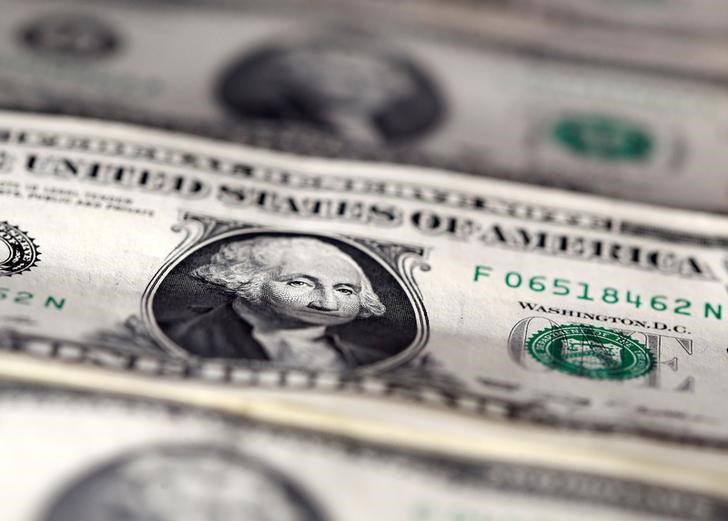By Abhinav Ramnarayan
LONDON (Reuters) - The dollar was set for its biggest weekly rise in 2017 and stocks rose across the world after U.S. President Donald Trump proposed the biggest tax overhaul in three decades in the United States.
In a year when the U.S. currency has taken a beating partly because of Trump's inability to get backing from other lawmakers for his spending measures, the tax plan helped push stocks up while safe-haven U.S. Treasuries sold off.
The dollar index (DXY), a trade-weighted basket of the dollar against its rivals, has gained more than 1 percent this week, putting it on track for its best weekly performance since December and wiping out a chunk of its year-to-date losses.
"Trump's fiscal package continues to drive markets," said Societe Generale (PA:SOGN) analyst Guy Stear. "U.S. bond yields have climbed both as a direct response to tax cut fears and as the market's wider risk appetite returned."
He said the sharp rise in 10-year Treasury yields, which hit a two-month high of 2.36 percent on Thursday, was driving the dollar higher.
The euro
Sterling lost half a percent to as low as $1.3364 after UK economic growth for the second quarter was revised down to 1.5 percent from a previous estimate of 1.7 percent.
A weaker euro helped European exporters and nudged the pan-European STOXX 600 index (STOXX) up to a two-month high.
That helped push world stocks (MIWD00000PUS) up 0.14 percent. MSCI's all-country world index, which tracks shares in 46 countries, has gained for 11 consecutive months - its longest winning run since 2004, as global growth keeps investors interested in the stock market.
Euro zone stocks (STOXXE) hit their highest in three months, on track for a quarterly gain after falling back in the second quarter.
Analysts at Deutsche Bank (DE:DBKGn) expect earnings for the STOXX 600 to grow 11 percent in 2017, with the pick-up in global growth and rebound in commodities outweighing the negative effect of the stronger euro.
Earlier, Asian shares regained some poise after a tough week. MSCI's broadest index of Asia-Pacific shares outside Japan (MIAPJ0000PUS) bounced 0.4 percent, but was still down 1.7 percent for the week so far. For the quarter, it looked set to gain 4.7 percent.
In euro zone bond markets, lower-than-expected German inflation data released on Thursday led many to speculate that the corresponding figure for the bloc as a whole, due on Friday, would also disappoint.
Investors will be keeping a close eye on the Spanish region of Catalonia, where separatist groups urged supporters to defy efforts to block an independence referendum on Sunday.
"At the moment, there is no significant market impact from the tensions, but if the Catalan police and the Spanish police are standing there in front of the polling stations and discussing whether to block the station or not, this will be an issue," said DZ Bank strategist Sebastian Fellechner.
Gold, under pressure due to the stronger dollar, was set for its biggest monthly fall of the year. The metal was last all but flat at $1,287 an ounce.
